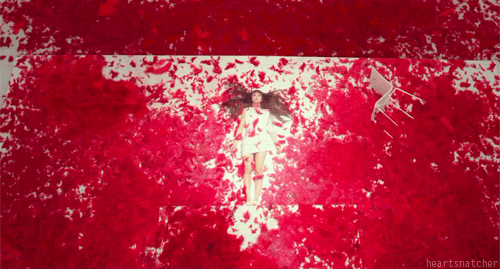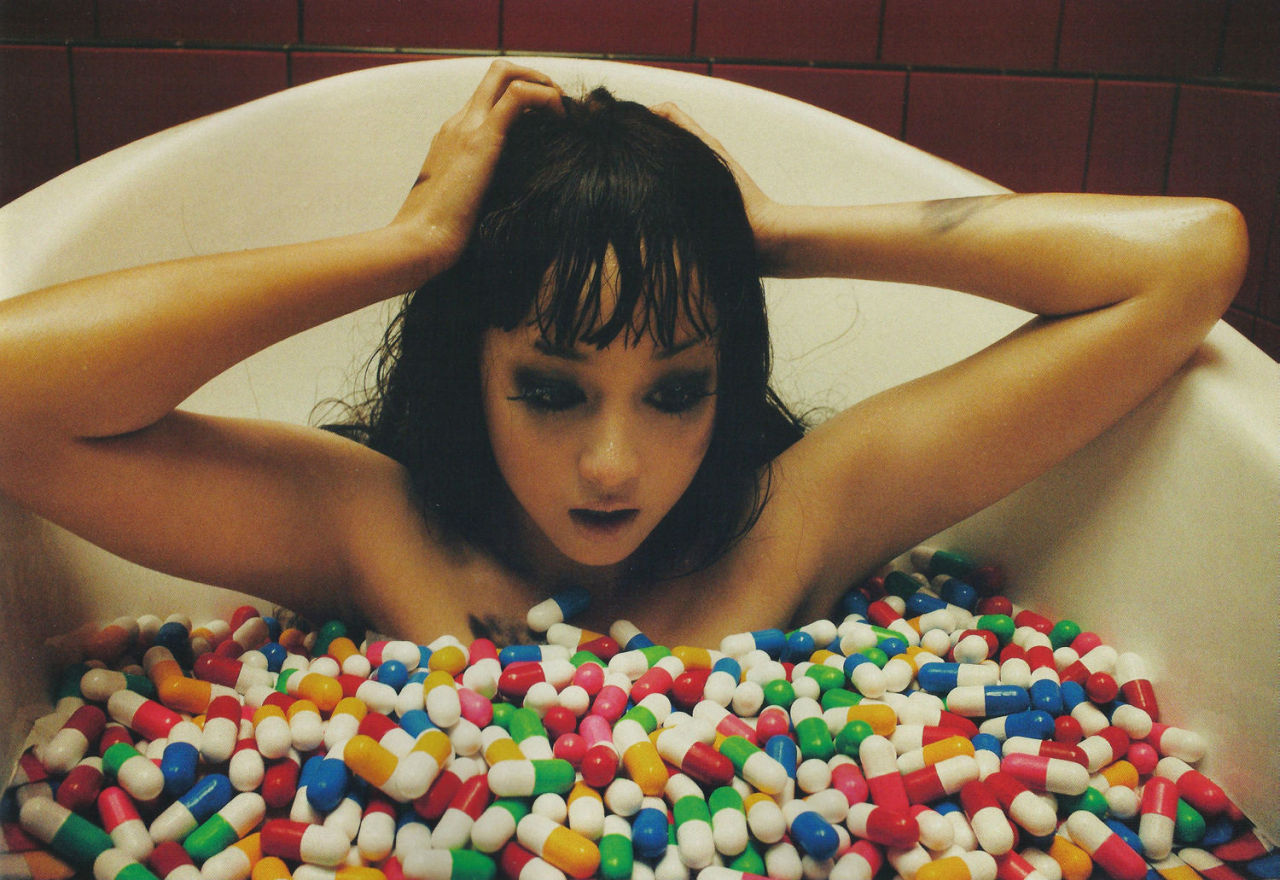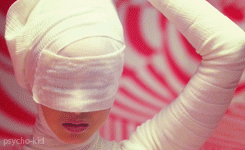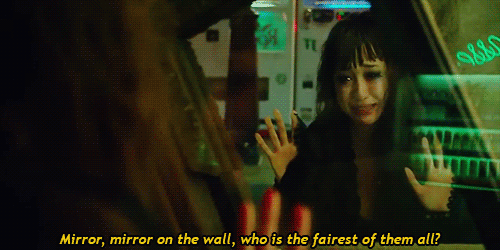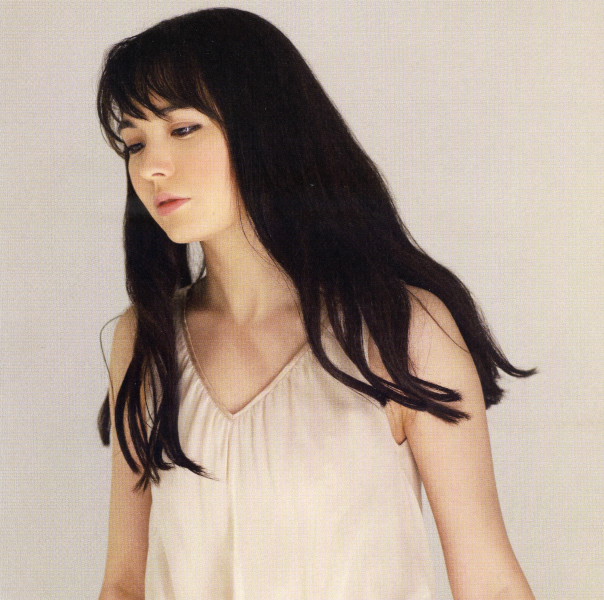I went into some depth discussing things, and I can't help be against full body/full face surgery (why do you hate your appearance THAT much?) But at the end of the day, people choose plastic surgery for themselves and we don't have the right to judge THEM, even though we may agree/disagree to it ourselves. If you don't like it, don't get it done, but don't judge others who do. Peace xx
Finally I'm here with a post to talk about my personal views on plastic surgery in Asia.
Today I watched the new Japanese film 'Helter Skelter', which is about a young celeb Ririko who had full body plastic surgery, and how she dealt with her issues as the surgeries took their toll. I found that the film very graphically pointed out to the evident problem Asian societies have with beauty, but left it open for viewers to think for themselves whether plastic surgery culture should continue or not.
Personally I'm fascinated by plastic surgery for obvious reasons, but I'm very annoyed at many articles and videos online of non-Asian people or Asian people living outside of Asia talking about plastic surgery as if it's the most absurd thing in the world. They make fun of it without thinking through why people do it, why so many people do it, why society allows for it etc. 'Omg, can you believe people make their eyes bigger to look more Western?' is the type of mocking tone all these videos use, making most non-Asian people who don't understand about plastic surgery culture in Asia think young Asian people are all weird and white-wannabes. 'Motivational' videos of people continually drumming into their viewers 'it's the inside that counts' or 'why do you want to look American?' to persuade them not to consider surgery as a option are blatantly ignorant. They think that they know what beauty is, but really, how can anyone define beauty in such a homogeneous way?
Plastic surgery is so common in Asia that most people don't even think it's considered 'changing'. Let alone have time to think 'I'm beautiful on the inside' and all those irrelevant topics.
Plastic surgery is so common in Asia that most people don't even think it's considered 'changing'. Let alone have time to think 'I'm beautiful on the inside' and all those irrelevant topics.
That man needs to shut his mouth.
I think there's something much deeper and concerned with human nature that drove plastic surgery culture to the scale it is today.
Desire is what every human is born with. Everyone wants what they don't have, and with the money and technology we have nowadays, what is there to stop us from getting the things we want? No one taught high school Asian girls that big eyes and small faces are beautiful. They don't care about looking American. We're talking about a society in which the rich and famous seek 'perfection' There is no room for flaws in success, which partly explains the no body hair, no bf/gf, no scandals, no talking of hardships, no social network, no talking about other celebs, no drinking/smoking in public, no overly private lifestyles these Hallyu stars are expected to give up to. It's understandable though considering how important they are to the country today.
An average adolescent is surrounded by images of Asian celebrities with perfect features, and since they are so well loved, it spurs on a desire for these girls to idolise them and want to look the same. As humans, our instinct is to adapt and accept to our surroundings. Hence why controlled political systems still exist. When people don't see what is outside of the box, they will accept and will not question. No one will even think to ask why a certain celebrity got surgery, or why these features came about to be the most ideal in the first place. What people see is popularity and love that these 'beautiful people' receive, and that's what they desire."K-pop accounts for around 3.8 billion dollars worth of the country's economy. So whilst the girls and boys might look like they're at it like rabbits, they're very much investments, to be protected from the wrong kind of attention." - Vice
"We'll be forgotten. We're just machines for the processing of desires. 'Pretty!' 'Wow!' 'That's what I want to be!' Desire doesn't care. It just keeps on going with another name and another face." - Kozue Yoshikawa, Helter Skelter
It doesn't matter to them whether in the future their surgeries will take their toll, and whether in the end they'll realise outward appearance is not everything they desire. Most people who have surgery know very clearly that appearance is not everything. But physical beauty is a weapon and a source of courage. Especially in Asia where it is very much a financial weapon. Hence no matter how many failed surgeries, regrets, scarring, post medication stress there are, there will always be a new generation of young people willing to try. The journey will never end because of curiosity. People see more utility in short term happiness, when they get attention and praise from others, than not having any of this at all.
So if surgeries do give people courage, and do offer positive utility subject to the individual, who are we to judge on whether people should get surgery or not? Maybe this surgery will genuinely make someone happier in life, so who are we to say that surgery is a bad thing?
Many would say the fundamental problem is the media, what people around us tell us and what we see. But I think otherwise, because without role models, fame and power, societies wouldn't exist in the first place. No matter how civilisation evolves, every human being will always at the end day have an idea of what is ugly and what is beautiful. WE WERE BORN TO JUDGE. If you think back on your life, no one told you what is beautiful and what is not. We are influenced by so many things we experience that this judgment on beauty was already made long before you could even realise it yourself.
So who is to blame? No one.
There isn't anything to blame for. Beauty is an economic market which will never die down, because there is always a plentiful supply of young men and women who want to look above average. And naturally, with the invisible hand of capitalism, something will take advantage of this. When a market has demand, there will always be suppliers. It's just simple economics. Markets will expand technologically if demand allows it, and who would say no to becoming more beautiful overnight?
The people get surgery because desire for beauty is something that will never disappear. The plastic surgeons do their work because the economy asks for it. The society's idea for beauty is an accumulated concept that originates back to the start of civilisation. The motivation exists because of curiosity. So, who is there to blame?
Maybe it's just Asian culture.
In Asia, beauty is definitely much more important in society than in any other part of the world. You must include a picture of yourself in resumes, and employers can unfairly distribute wages based on appearance. In other words, being beautiful is essential. There are high school students in Asia who think when they finish their uni exams, they are finally allowed have a taste of the real society: drinking, getting into relationships, having plastic surgery etc, because it's normal and what everyone else is doing. When girls get surgery, it doesn't matter to them that their new face will be fake. All they care about is the new opportunities that they will have.
Even though I hate the idea of 'media influence' as a reason of why people decide to go under the knife, it's definitely a factor. I grew up in London, and not once did I think about the size of my eyes or face or anything before I discovered what Asians think about them on the internet. During secondary school here, I remember talking to my friends about double eyelids, and nobody even knows what they are. People here joke about Asians having slanty eyes, but I never heard anyone saying that slanty eyes are 'ugly'. One very interesting phenomenon that I want to mention is that in the West, when you tell your friends 'I'm ugly/fat' etc, they will say 'No way, you're pretty!', but in Asia, people will bluntly tell you 'Yes you're fat/ugly' if they think you are, because they think it's a genuine/helpful comment.
In Asia, beauty is more of a second nature or obsession than enhancement. It's like a drug that's hard to quit. Asian makeup doesn't enhance your appearance, it's made to change it. The more you play with it the more addictive and the more you want. Until you're so obsessed that it doesn't matter if when you're old your face will become distorted. It doesn't matter if you have to take post surgery medication. It doesn't matter if most men will not date you seriously if you had surgery. What matters is that you can become more and more and more beautiful, so why should you stop?
What I'm fascinated by though is not why people pursue beauty, it's why people have the courage to let a stranger cut their faces/bodies open whilst they are unconscious, and how they can cope with living out the rest of their lives with plastic inside their bodies. Whatever the reason, it must be so crucial to the individual's life they s/he is willing to turn a blind eye.
What I'm fascinated by though is not why people pursue beauty, it's why people have the courage to let a stranger cut their faces/bodies open whilst they are unconscious, and how they can cope with living out the rest of their lives with plastic inside their bodies. Whatever the reason, it must be so crucial to the individual's life they s/he is willing to turn a blind eye.
On a casual note, I do think some Asian surgeons, particularly in South Korea, know what they're doing when they operate. Even though it's so obvious to me when someone's had surgery, you can tell there has been an attempt to make each look unique. The doctors consult their patients in great depth about their bone structures etc, and will often make suggestions on what they think suits their patients' faces/bodies. Most of the ones that come out looking unnatural are probably mindless people who pile on mix-matched ideal features from celebrities, which generally will not look good together.
After watching some youtube videos, I realised that Korean women who get surgery find it a very pleasant experience. They often go through minimal pain (or less than they can endure), and the result is most of the time desirable. Hence more and more women go. I often wonder what goes on in the minds of these plastic surgeons. Why do they find so much pleasure in changing people's bodies when it's not needed? Their patients' entire lives and futures are in their hands, do they find it satisfying that they have such immense power over someone else, or do they enjoy being trusted? Do they sincerely want to make others' lives 'better'? How can anyone be strong enough to watch themselves cut open another person's flesh and tell themselves that it's for their own good?
After watching some youtube videos, I realised that Korean women who get surgery find it a very pleasant experience. They often go through minimal pain (or less than they can endure), and the result is most of the time desirable. Hence more and more women go. I often wonder what goes on in the minds of these plastic surgeons. Why do they find so much pleasure in changing people's bodies when it's not needed? Their patients' entire lives and futures are in their hands, do they find it satisfying that they have such immense power over someone else, or do they enjoy being trusted? Do they sincerely want to make others' lives 'better'? How can anyone be strong enough to watch themselves cut open another person's flesh and tell themselves that it's for their own good?
However even though I don't hate plastic surgery, it does make me sad when you ask a teenager living in Asia 'what is beauty to you?' they will reply with 'Big eyes, small face, high nose bridge, white skin, tall, etc'. I think that even though surgery removes your outside flaws, it will never remove your insecurities. Everyone has them and it's hard to deal with it especially when you have Asian friends who tell you you're fat/ugly on a daily basis (trust me, they don't mean to make you feel bad!), it's even more hard not to do something about it. I think it's impossible to fully accept yourself when you know you have flaws, but it's always good to think that your flaws makes who you are, and your good points may even come from your flaws. It's hard to believe, but no matter how 'ugly' you think you are, there will be people out there who will think you are beautiful in your own unique way. I once watched a Chinese TV programme where one of the presenters went to S.Korea to shoot a show, and she recalled "all the celebs I met were every pretty. But when I came out of the studio, I couldn't remember any of the faces."
There was one scene in Helter Skelter which I found especially memorable.
'Tiger Lilies' is in the film a name given to young girls who are willing to go on lengthy 'adventures' in order to become beautiful. In that scene, two older people stood in the middle of Shibuya. Looking around they said:
References:
High school girls in Korea
http://vimeo.com/26833191
kpsurgery.tumblr.com
Maybe she is really happier?
https://www.youtube.com/watch?v=2fn3H6WXdgU
Surgery creates extra economic activity+jobs by hotels who offer patients private plans for them to rest and heal. Korea is also a tourist destination for plastic surgery (many Chinese and even Caucasian people travel to Korea just to get surgery).
https://www.youtube.com/watch?v=SJDjEGX7SDg
Watch how these girls are STILL overly conscious even after surgery
https://www.youtube.com/watch?v=U0caS8OPnS4
Not all people in Korea like plastic surgery, and modern Korea's obsession with 'perfection'. Seoul Fashion Week recruit models who have natural faces
https://www.youtube.com/watch?v=0wWKjxxM6q8
'Tiger Lilies' is in the film a name given to young girls who are willing to go on lengthy 'adventures' in order to become beautiful. In that scene, two older people stood in the middle of Shibuya. Looking around they said:
"There are Little Tiger Lilies everywhere. Young, glittering. But everyone knows one day it has to end."
References:
High school girls in Korea
http://vimeo.com/26833191
kpsurgery.tumblr.com
Maybe she is really happier?
https://www.youtube.com/watch?v=2fn3H6WXdgU
Surgery creates extra economic activity+jobs by hotels who offer patients private plans for them to rest and heal. Korea is also a tourist destination for plastic surgery (many Chinese and even Caucasian people travel to Korea just to get surgery).
https://www.youtube.com/watch?v=SJDjEGX7SDg
Watch how these girls are STILL overly conscious even after surgery
https://www.youtube.com/watch?v=U0caS8OPnS4
Not all people in Korea like plastic surgery, and modern Korea's obsession with 'perfection'. Seoul Fashion Week recruit models who have natural faces
https://www.youtube.com/watch?v=0wWKjxxM6q8

